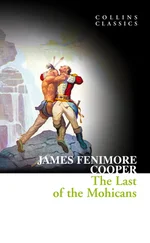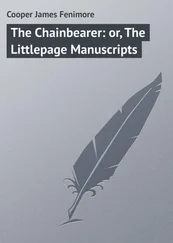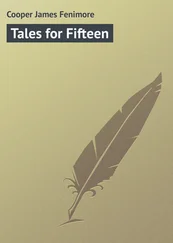James Cooper - The Spy - Condensed for use in schools
Здесь есть возможность читать онлайн «James Cooper - The Spy - Condensed for use in schools» — ознакомительный отрывок электронной книги совершенно бесплатно, а после прочтения отрывка купить полную версию. В некоторых случаях можно слушать аудио, скачать через торрент в формате fb2 и присутствует краткое содержание. Жанр: foreign_prose, на английском языке. Описание произведения, (предисловие) а так же отзывы посетителей доступны на портале библиотеки ЛибКат.
- Название:The Spy: Condensed for use in schools
- Автор:
- Жанр:
- Год:неизвестен
- ISBN:нет данных
- Рейтинг книги:5 / 5. Голосов: 1
-
Избранное:Добавить в избранное
- Отзывы:
-
Ваша оценка:
- 100
- 1
- 2
- 3
- 4
- 5
The Spy: Condensed for use in schools: краткое содержание, описание и аннотация
Предлагаем к чтению аннотацию, описание, краткое содержание или предисловие (зависит от того, что написал сам автор книги «The Spy: Condensed for use in schools»). Если вы не нашли необходимую информацию о книге — напишите в комментариях, мы постараемся отыскать её.
The Spy: Condensed for use in schools — читать онлайн ознакомительный отрывок
Ниже представлен текст книги, разбитый по страницам. Система сохранения места последней прочитанной страницы, позволяет с удобством читать онлайн бесплатно книгу «The Spy: Condensed for use in schools», без необходимости каждый раз заново искать на чём Вы остановились. Поставьте закладку, и сможете в любой момент перейти на страницу, на которой закончили чтение.
Интервал:
Закладка:
“That paper, that abuse of his confidence, will steel him to my brother’s case. If threats or entreaties could move his stern sense of justice, would André have suffered?” As Frances uttered these words, she fled from the room in despair.
Dunwoodie remained for a minute nearly stupefied; and then he followed with a view to vindicate 52 52 free from blame.
himself, and to relieve her apprehensions. On entering the hall that divided the two parlors, he was met by a ragged boy, who looked one moment at his dress, and placing a piece of paper in his hands, immediately vanished through the outer door of the building. The soldier turned his eyes to the subject of the note. It was written on a piece of torn and soiled paper, and in a hand barely legible; but, after much labor, he was able to make out as follows:
“The rig’lars are at hand, horse and foot.”
Dunwoodie started; and, forgetting everything but the duties of a soldier, he precipitately left the house. While walking rapidly towards the troops, he noticed on a distant hill a vidette 53 53 a mounted sentinel.
riding with speed; several pistols were fired in quick succession, and the next instant the trumpets of the corps rang in his ears with the enlivening strain of “To arms.” By this time he had reached the ground occupied by his squadron; the major saw that every man was in active motion. Lawton was already in the saddle, eying the opposite extremity of the valley with the eagerness of expectation.
CHAPTER VI.
THE SKIRMISH AND ESCAPE OF CAPTAIN WHARTON
The videttes and patrols now came pouring in, each making in succession his hasty report to the commanding officer, who gave his orders coolly and with a promptitude that made obedience certain.
Major Dunwoodie had received from his scouts all the intelligence concerning the foe which was necessary to enable him to make his arrangements. The bottom of the valley was an even plain, that fell with a slight inclination from the foot of the hills on either side to the level of a natural meadow that wound through the country on the banks of a small stream. This brook was easily forded, and the only impediment it offered to the movements of the horse was in a place where its banks were more steep and difficult of access than common. Here the highway crossed it by a rough wooden bridge.
The hills on the eastern side of the valley were abrupt, and frequently obtruded themselves in rocky prominences into its bosom. One of these projections was but a short distance in the rear of the squadron of dragoons, and Dunwoodie directed Captain Lawton to withdraw with two troops behind its cover. Dunwoodie knew his man, and had selected the captain for this service both because he feared his precipitation in the field, and knew, when needed, his support would never fail to appear. On the left of the ground on which Dunwoodie intended to meet his foe was a close wood, which skirted that side of the valley for the distance of a mile. Into this, then, the guides retired, and took their station near its edge, in such a manner as would enable them to maintain a scattering but effectual fire on the advancing column of the enemy.
Dunwoodie’s men now sat panting to be led once more against foes whom they seldom charged in vain. A few minutes enabled the major to distinguish their character. In one troop he saw the green coats of the Cow-Boys and in the other the leathern helmets and wooden saddles of the yagers. 54 54 These were Hessian soldiers (from Hesse-Cassel, in Germany) hired by Great Britain. The Cow-Boys were Americans enlisted as soldiers in the British army. On the next page they are referred to as the “refugee troop.”
Their numbers were about equal to the body under his immediate orders.
On reaching the open space near the cottage of Harvey Birch, the enemy halted and drew up his men in line, evidently making preparations for a charge. At this moment a column of foot appeared in the vale, and pressed forward to the bank of the brook we have already mentioned.
Major Dunwoodie at once saw his advantage, and determined to profit by it. The column he led began slowly to retire from the field, when the youthful German who commanded the enemy’s horse, fearful of missing an easy conquest, gave the word to charge. The Cow-Boys sprang eagerly forward in the pursuit; the Hessians followed more slowly, but in better order. The trumpets of the Virginians now sounded long and lively; they were answered by a strain from the party in ambush that went to the hearts of their enemies. The column of Dunwoodie wheeled in perfect order, opened, and, as the word of charge was given, the troops of Lawton emerged from their cover, with their leader in advance, waving his sabre over his head, and shouting in a voice that was heard above the clamor of the martial music.
The charge threatened too much for the refugee troop. They scattered in every direction, flying from the field as fast as their horses could carry them. It was upon the poor vassals of the German tyrant that the shock fell. Many of them were literally ridden down, and Dunwoodie soon saw the field without an opposing foe.
Captain Wharton had been left in the keeping of two dragoons, one of whom marched to and fro on the piazza with a measured tread, and the other had been directed to continue in the same apartment with the prisoner.
The lawn in front of the Locusts was hidden from the road by a line of shrubbery, and the horses of the two dragoons had been left under its shelter to await the movements of their masters.
At this moment two Cow-Boys, who had been cut off from a retreat to their own party, rode furiously through the gate, with an intention of escaping to the open wood in the rear of the cottage. Feeling themselves in the privacy of the lawn, relieved from any immediate danger, they yielded to a temptation that few of the corps were ever known to resist – opportunity and horseflesh – and made towards their intended prizes by an almost spontaneous movement. They were busily engaged in separating the fastenings of the horses, when the trooper on the piazza discharged his pistols, and rushed, sword in hand, to the rescue.
This drew the wary dragoon in the parlor to the window.
He threw his body out of the building, and with dreadful imprecations endeavored by threats and appearance to frighten the marauders from their prey. The moment was enticing. Three hundred of his comrades were within a mile of the cottage; unridden horses were running at large in every direction, and Henry Wharton seized the unconscious sentinel by his legs and threw him headlong into the lawn. Cæsar vanished from the room, and drew a bolt of the outer door.
Recovering his feet, the sentinel turned his fury for a moment on his prisoner. To scale the window in the face of such an enemy, was, however, impossible, and on trial he found the main entrance barred.
His comrade now called loudly upon him for aid, and forgetting everything else, the discomfited trooper rushed to his assistance. One horse was instantly liberated, but the other was already fastened to the saddle of a Cow-Boy, and the four retired behind the building, cutting furiously at each other with their sabres, and making the air resound with their imprecations. Cæsar threw the outer door open, and pointing to the remaining horse, that was quietly biting the faded herbage of the lawn, he exclaimed:
“Run, now, run – Massa Harry, run!”
“Yes,” cried the youth, as he vaulted into the saddle, “now indeed, my honest fellow, is the time to run.”
When the fortune of the day was decided, and the time arrived for the burial of the dead, two Cow-Boys and a Virginian were found in the rear of the Locusts, to be included in the number.
Читать дальшеИнтервал:
Закладка:
Похожие книги на «The Spy: Condensed for use in schools»
Представляем Вашему вниманию похожие книги на «The Spy: Condensed for use in schools» списком для выбора. Мы отобрали схожую по названию и смыслу литературу в надежде предоставить читателям больше вариантов отыскать новые, интересные, ещё непрочитанные произведения.
Обсуждение, отзывы о книге «The Spy: Condensed for use in schools» и просто собственные мнения читателей. Оставьте ваши комментарии, напишите, что Вы думаете о произведении, его смысле или главных героях. Укажите что конкретно понравилось, а что нет, и почему Вы так считаете.












